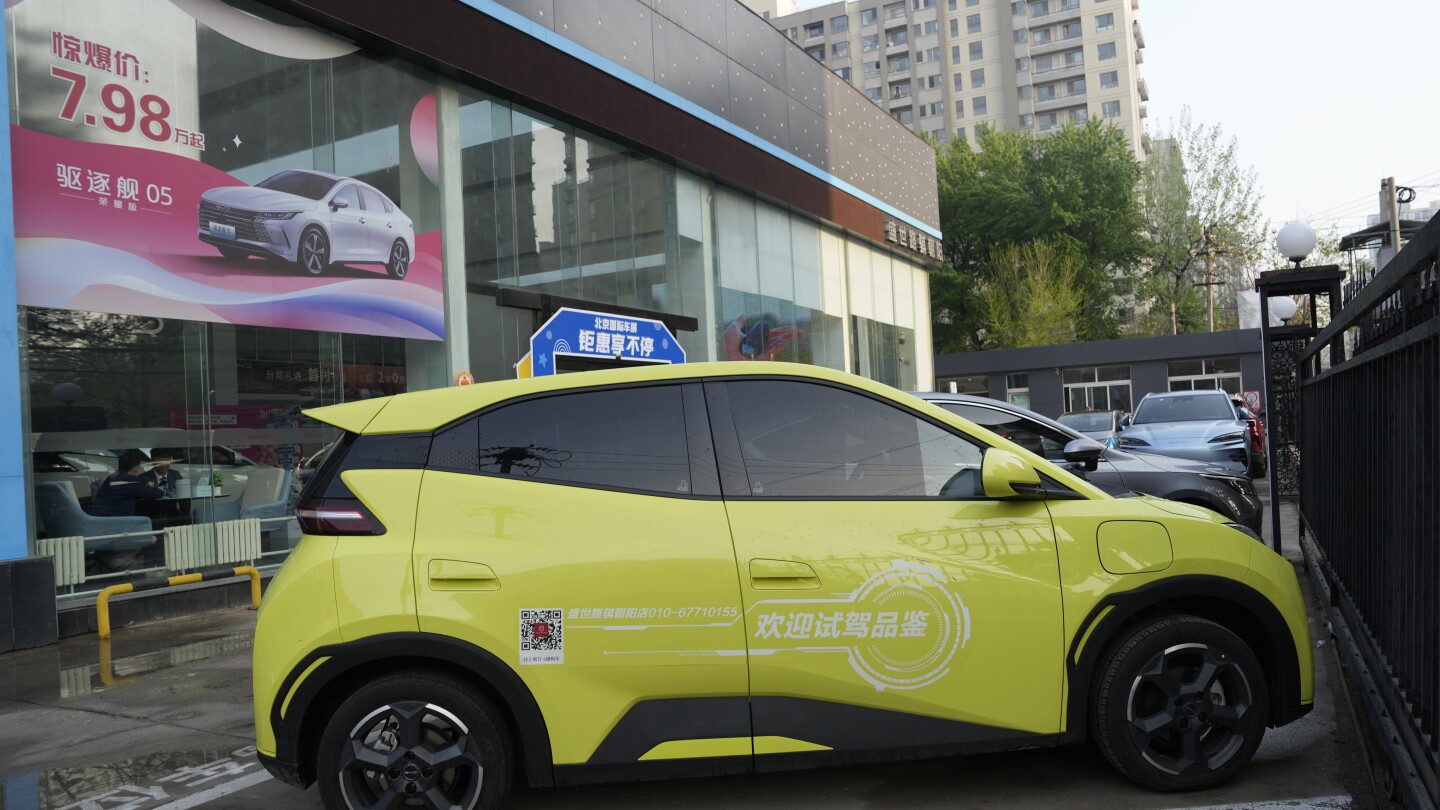A tiny, low-priced electric car called the Seagull has American automakers and politicians trembling.
The car, launched last year by Chinese automaker BYD, sells for around $12,000 in China, but drives well and is put together with craftsmanship that rivals U.S.-made electric vehicles that cost three times as much. A shorter-range version costs under $10,000.
Tariffs on imported Chinese vehicles probably will keep the Seagull away from America’s shores for now, and it likely would sell for more than 12 grand if imported.
But the rapid emergence of low-priced EVs from China could shake up the global auto industry in ways not seen since Japanese makers exploded on the scene during the oil crises of the 1970s. BYD, which stands for “Build Your Dreams,” could be a nightmare for the U.S. auto industry.
“Any car company that’s not paying attention to them as a competitor is going to be lost when they hit their market,” said Sam Fiorani, a vice president at AutoForecast Solutions near Philadelphia. “BYD’s entry into the U.S. market isn’t an if. It’s a when.”



Except it’s not capitalism when China does it, it’s socialism. The EV manufacturers like BYD have had massive subsidies from the state to bring those products to market, and that level of state support and intervention is not palatable to Americans.
Political, Climate change and National Security concerns aside, the subsidies are how the US government are about to justify the tariffs.
So are massive subsidies only socialism when China does it?
The US has been doing that for decades.
yes but then the US doesn’t expect to sell huge quantities of its cars in China and upset the market. Nor would China permit that.
They not only sell huge quantities of cars in China, they export new and used cars to China for sale.
They’re not upsetting the market because they’re already a huge part of it.
Upsetting the market is generally good for consumers. Why exactly would you want to lick the boots of American auto manufacturers when they’re actively price gouging in the absence of any competition?
We can talk about the massive subsidies the US government did and do to the automakers. The propaganda paid with tax money to have a centered car environment.
Each country subsidies its automaker but doesn’t want the other to do so because “Free market™”. It’s at best hypocrite.